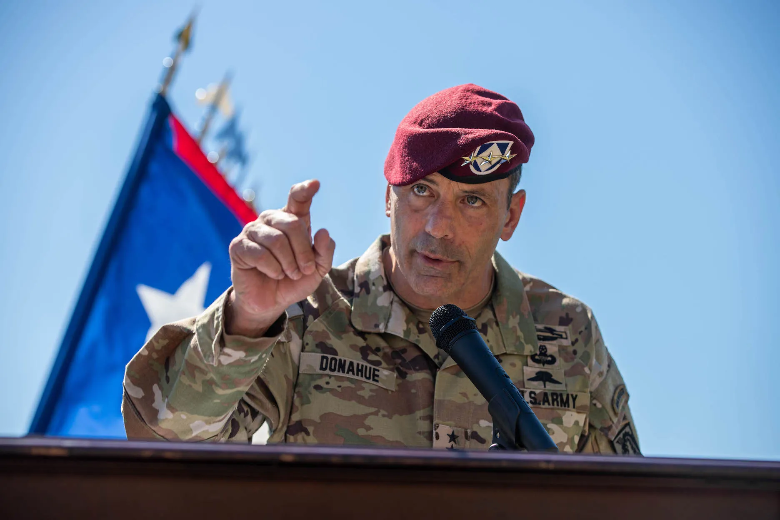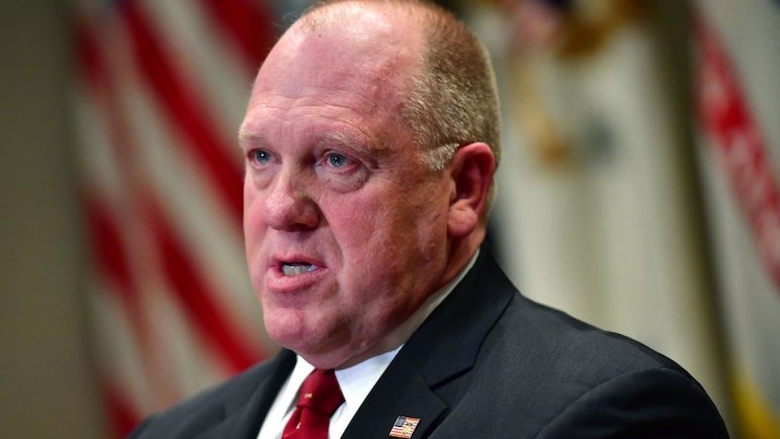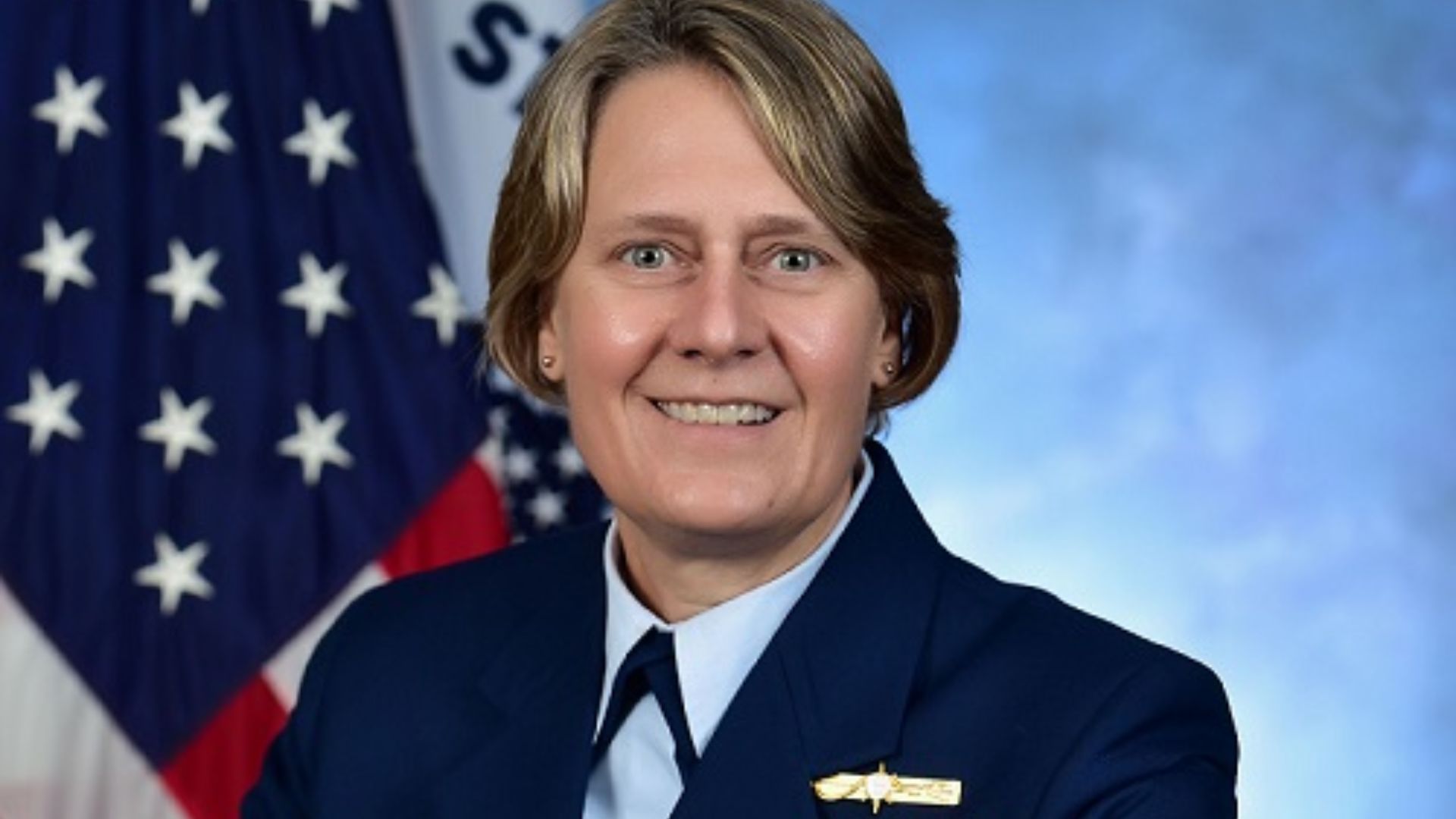The Senate approved a large slate of military promotions this week, but a notable omission has raised eyebrows in Washington. Lt. Gen. Christopher Donahue, nominated by President Joe Biden to lead U.S. Army operations in Europe and Africa, did not make the cut. Donahue’s nomination to the prestigious rank of four-star general was held up, with reports suggesting an unnamed senator has placed a hold on the process.
This development comes in the shadow of Donahue’s role during the chaotic Afghanistan withdrawal in 2021, a debacle that left lasting scars on U.S. foreign policy and military credibility. As the commander of the 82nd Airborne Division, Donahue was responsible for securing Hamid Karzai International Airport in Kabul. Famously, he was the last U.S. service member to leave Afghanistan during the withdrawal, which resulted in the deaths of 13 U.S. troops and hundreds of Afghan civilians in a devastating bombing.
New Podcast! Trump’s Nominees Rock DC – ET Talk
Donahue’s promotion was part of a group of roughly 1,000 nominations approved by the Senate Armed Services Committee earlier this week. However, his name was conspicuously absent from the final list ratified by the Senate. According to Politico, the delay “suggests a senator is holding the nomination,” though no one has publicly claimed responsibility or provided an explanation.
The Senate is now on recess until December, leaving the timing of Donahue’s promotion uncertain. Senate holds, while not uncommon, can only be bypassed by a full vote on the Senate floor—a procedure that is often time-intensive and rarely invoked.
While the exact reason behind the hold remains unclear, Donahue’s association with the Afghanistan withdrawal looms large. The withdrawal, widely criticized as poorly planned and executed, marked a low point for the Biden administration. For many Americans, the images of desperate Afghans clinging to departing U.S. aircraft and the tragic bombing at the airport’s Abbey Gate remain seared in memory.
Republicans have consistently condemned the withdrawal as a strategic failure, accusing both civilian and military leadership of negligence. The deaths of 13 U.S. service members, coupled with the abandonment of billions of dollars in military equipment, have become rallying points for criticism.
Adding fuel to the fire, former President Donald Trump’s transition team is reportedly compiling a list of senior military officials involved in the withdrawal for potential legal and political repercussions. According to NBC News, the team is considering the creation of a commission to investigate the decisions leading up to and during the withdrawal.
The proposed commission would delve into the roles of military and civilian leaders, with the aim of identifying failures in strategy and execution. Sources indicate that court-martialing some officials is being considered. Donahue, as a central figure in the operation, is likely to be a focus of such an inquiry.
The Afghanistan withdrawal has remained a polarizing topic in U.S. politics. Critics of Donahue’s nomination argue that rewarding a key figure in the withdrawal sends the wrong message about accountability in military leadership.
“Promotions should go to those who demonstrate excellence, not to those associated with catastrophic failures,” said one Republican senator, speaking on the condition of anonymity.
Others, however, see the hold as a politically motivated move that unfairly targets a decorated officer. Donahue, who has more than three decades of military service, is widely respected within the Army for his leadership and tactical expertise.
“Blaming individuals like Donahue for a failure of policy and strategy is misguided,” said a retired general familiar with the situation. “The decisions made during the withdrawal were shaped by higher-level directives, not by those executing orders on the ground.”
As the Senate recesses, the fate of Donahue’s promotion remains uncertain. It is unclear whether the senator responsible for the hold will lift it, or if Senate leadership will prioritize a floor vote to advance his nomination.
The broader implications of this hold could extend beyond Donahue’s career, reigniting debates about accountability in military operations and the political polarization surrounding the Afghanistan withdrawal.
For now, Donahue’s stalled promotion serves as a reminder of the lingering fallout from one of the most controversial episodes in modern U.S. military history. Whether his nomination moves forward or becomes a casualty of political maneuvering, the Afghanistan withdrawal continues to cast a long shadow over those who were part of it.



Saying it wasn’t his fault because his civilian bosses made the decisions is bullshit. As the highest ranking military officer involved, it was his responsibility to throw his rank on the table and inform the officials they were making mistakes. He likely didn’t do that for fear of his next promotion. Justice is served.